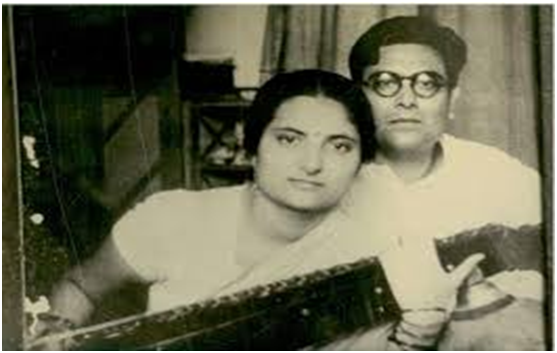The Saviour Of Those Good Old Days In Lucknow
Amritlal Nagar, the great Hindi writer

The amazing work of Hindi writer Amritlal Nagar collects dust no more. His admirers in Lucknow have pulled down many more of Nagar's books from shelves to share his writing with audiences in different corners of the city.
After all this August flags off a year long celebration of the birth anniversary of one of the city's most colourful chroniclers.
Nagar was born in 1916 in Agra and left for Mumbai in the 1940s to write dialogues and screenplays for films. The later part of the same decade saw him return to Uttar Pradesh and settle down in a hustling bustling alley of Chowk, the medieval corner of Lucknow. Chowk was once the center of all commercial and cultural life in Lucknow when the city was a coveted imperial capital.
It is here that Nagar spent a lifetime mastering the colourful speech and mannerisms of ordinary people caught in between the fading world of yesteryears and the brash new world of tomorrow.
In the writing of Nagar, it is possible to see sights and hear the sound of a rapidly transforming Lucknow. Nagar concentrates on the cultural setting of his lively neighbourhood and writes with great sensitivity and wit mainly about humble lives as observed by him on the street.
Committed to absolute social justice for all, the protagonists of Nagar's narrative are mostly those who are left standing on the crossroad of economic and social relationships beyond their control. His writing is precious because it preserves a slice of life as it had once thrived in the magical lanes and bylanes of Lucknow. For writing the way he did, Nagar was honoured with a Padma Bhushan and he won the Sahitya Academy Award in 1967 for a novel that concentrates on an urban locality and the daily struggles of ordinary citizens against poverty, greed and superstition. Nagar's depiction of the feudal ways of his characters seen clashing with the changing lifestyle of the neo-rich in Lucknow is both amusing and disturbing.
Nagar loved to write for children as well. Many rib-tickling poems and fables with animal characters were introduced to participants at a Lucknow workshop led by Deeksha Nagar, the writer's granddaughter and professional folklorist. Her grandfather, Deeksha says recognised the power of folklore in understanding and connecting human beings with each other. Traditional societies had used folklore to share knowledge and life skills with the next generation and there is no lesson more attractive for children than a story well told.
In another corner of the city the theatre students of the Bhartendu Natya Academy chose to adapt three of Nagar's short stories for the stage recently. Inspired by the tension found in Nagar's writing between the past and present, tradition and modernity and dream and reality, aspiring actors staged "Shakila ki Ma", a beautiful sketch of the precarious existence of the city's courtesan culture that saw its peak during the good old days of the 19th century. This is when high culture was found in the exquisite interiors of the first floor residence of courtesans residing in the heart of the bazaars at Chowk.
Now cobwebbed, the left over life of those days seems even more sorrowful after a recitation on stage of lines by contemporary poet Wali Aasi:
mujhse subah shaam shikwa kar raha hai Lucknow
dekho kaise dheerey dheerey mar raha hai Lucknow
"Gorakhdhanda" is a funny story of opium eaters and a brag who lives in a world that seems to have been bypassed by history while "Qadir Mian ki Bhauji" is a lush example of individuals who had once stood by each other in times of distress and delight. This is when most human beings had lived within the emotional security of closely knit communities where neighbours were seldom considered the other but often treated more precious than immediate family members.
Those then were the days my friend that have been so fondly saved in the work of great writer Nagar.



